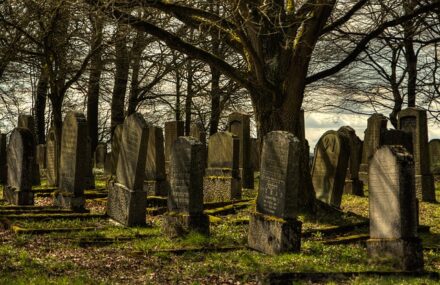If you were to die tonight, where would you spend eternity?
I saw this again the other day and I set it aside as I wanted to write about it. I grow so weary with seeing things like this. Unhealthy churches distort the Gospel and they change people’s focus from God to other things. Relationship with God is replaced with performance based religion. The message of grace is twisted and people develop warped views of God due to the faulty teachings and practices. It is about escaping hell. It becomes about bringing people to their church and not necessarily into a relationship with God. Let me give an example of what I believe to be this faulty evangelism focus.
Tim Downs is an Apostolic evangelist and pastor. His stated vision is to train Apostolics (Oneness Pentecostals) how to win souls and reach the lost. Some years back he released a poorly made DVD titled, Do You Want To Go To Heaven Or Hell (screenshot), which was touted as a ‘soul winning’ method. (The first link takes you to the film on YouTube and the second to a print out of his method.)
His approach involves asking people if they want to go to heaven or hell and then he quickly transports them to a church, gets them water baptized and attempts to pray them through to tongues. The approach seems to be to avoid hell and because of this, I view it as motivated through fear. People who come to a church or God that way often do not last and understandably so. Besides not becoming rooted, they are not hearing about the love of God and how much he cares for them. Instead, it becomes about fleeing eternal torment and is a seemingly ‘quick fix’ to that scenario.
Take note the scripted discussion in the video. Do you notice the wrong emphasis? How does this compare to what we see in the New Testament, of when believers were sharing the Gospel to someone who didn’t know? Here it is all about avoiding hell and being baptized ‘the right way.’ This causes people to believe they need to follow a few steps and they are assured of going to heaven. It’s about what THEY must do to be saved. Hey- that’s what the initial focus and hurry is all about- going to heaven or going to hell. It isn’t about coming to know Jesus.
The method used by Downs, and similar ones by others, misses what becoming a believer is about. It isn’t about going to heaven or hell. Church today is so messed up that it has strayed so far from early Christian practices that in many ways it bears little resemblance.
If you are using this misguided focus to reach people, please stop to take a long, hard look at what you see in the New Testament. Do you recall Peter, Phillip, John, Paul or any of the others ask people something like “If you were to die tonight, where would you spend eternity?” or “Do you want to go to heaven or hell?” Even Jesus himself never went around asking these questions. Did they focus on getting people baptized ‘the right way’ or was it about having a new life with Jesus? Was it about numbers being added to a church’s or evangelist’s statistics, or was it about how God loves us and the death, burial and resurrection of Jesus and what that means to them?
While such methods may produce numbers which may seem impressive without further investigation, what are the long term results? Are people doing what is told them simply to have a false assurance that they will go to heaven? Like with the scare tactic of the rapture messages, how many go for a short time and then leave or not even return at all after their initial encounter? Let’s use Downs’ own statistics as some food for thought.
On his evangelism website, Downs writes that in 2011 he left evangelizing to pastor a church in Georgia. It is stated, “In the first year they baptized over 712 people in the name of Jesus…” Yet when we go to the church website, we find that “They have seen incredible growth since opening the church on May 1, 2011 with having an attendance of 200-300 on a regular basis.” What happened to those several hundred missing people from the first year and who knows how many in the years thereafter? Did they ever come to know Jesus or have a one on one relationship with him? Or was it nothing more than avoiding hell and wanting to go to heaven? These are things we should seriously ponder.
The question should never be “If you were to die tonight, where would you spend eternity?” Rather, the focus should be on the death, burial and resurrection of Jesus and believing and placing faith in him. It should be about God’s love for us and on having a personal relationship with God. It isn’t about heaven or hell, but about knowing and following our Creator.
[2023 Edit: Since this was written in April 2017, Downs and his wife Holly divorced and in July 2019, he married his daughter-in-law, Stephanie, whom his son had married in 2012. He is pastor of Hope Center in Michigan City, Indiana. It is touted as a “a non-denominational church,” but is Oneness Pentecostal.]













